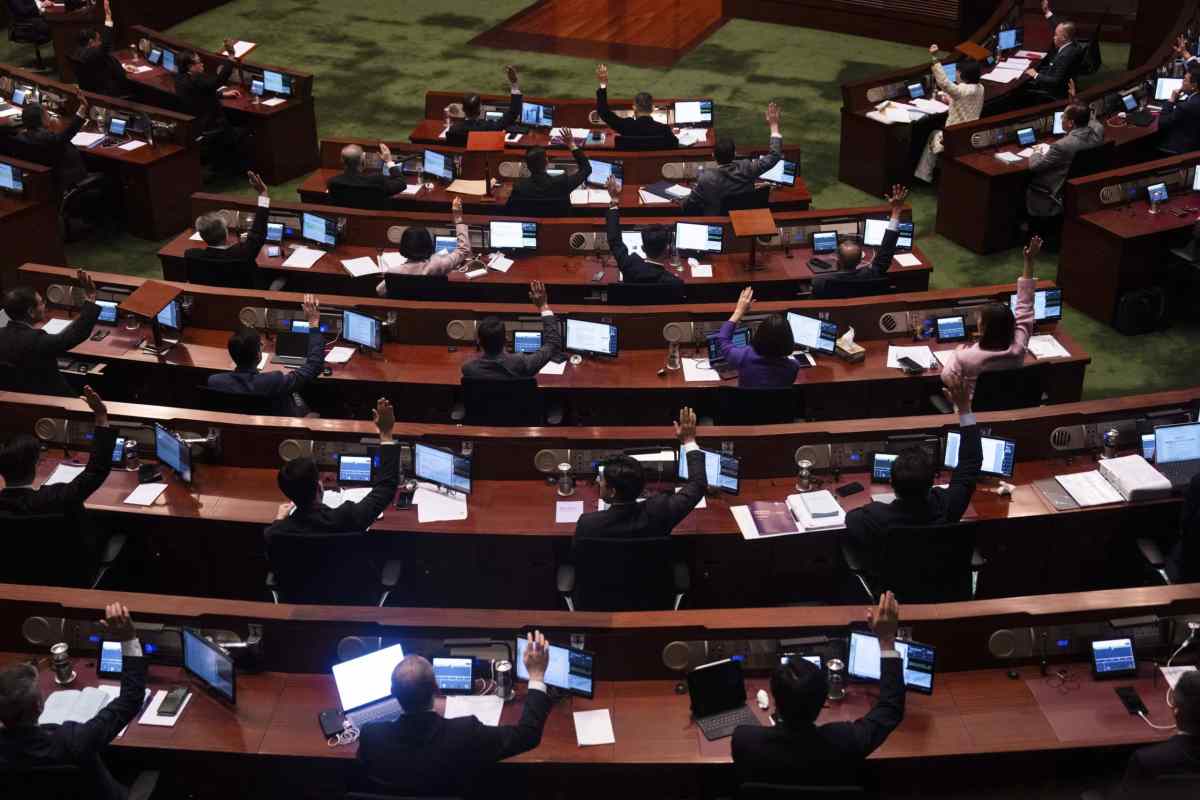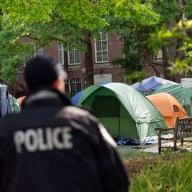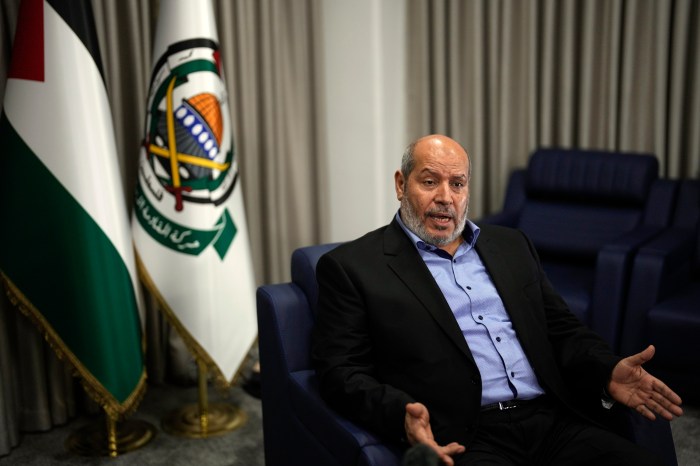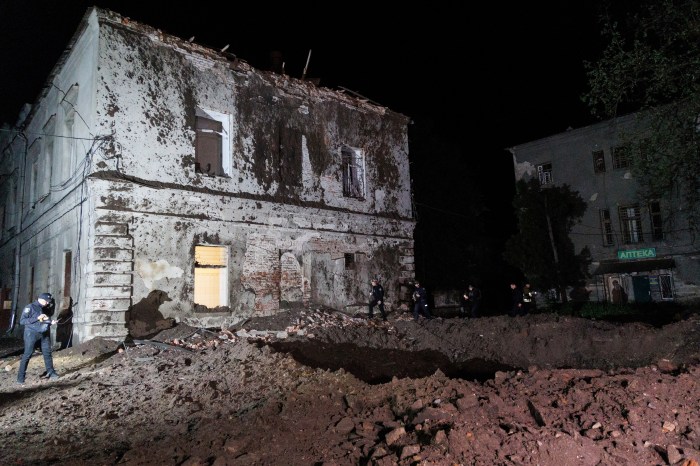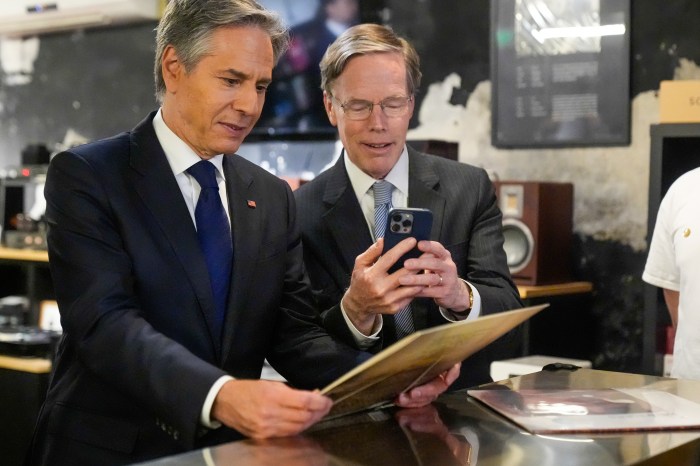HONG KONG (AP) — Hong Kong lawmakers unanimously approved a new national security law Tuesday that grants the government more power to quash dissent, widely seen as the latest step in a sweeping political crackdown triggered by pro-democracy protests in 2019.
The legislature passed the Safeguarding National Security Bill during a special session. The law will expand authorities’ ability to prosecute citizens for offenses including “colluding with external forces” to commit illegal acts as well as charge them with treason, insurrection, espionage, and disclosing state secrets, among others.
It comes on top of a similar security law Beijing imposed in 2020, which has already largely silenced opposition voices in the financial hub. Critics worry the new law will further erode civil liberties that Beijing promised to preserve for 50 years when the former British colony returned to Chinese rule in 1997.
Hong Kong’s Legislative Council, packed with Beijing loyalists following an electoral overhaul, rushed the law through to approval. Since the bill was unveiled on March 8, a committee held daily meetings for a week, following an appeal by Hong Kong leader John Lee to push the law through “at full speed.” After the vote, Lee said that the law would take effect Saturday.
“Today is a historic moment for Hong Kong,” he said.
The newly approved law threatens stringent penalties for a wide range of actions authorities call threats to national security, with the most severe — including treason and insurrection — punishable by life imprisonment. Lesser offenses, including the possession of seditious publications, could also lead to several years in jail. Some provisions allow criminal prosecutions for acts committed anywhere in the world.
Legislative Council President Andrew Leung said in the morning he believed all lawmakers were honored to have taken part in this “historic mission.” Council presidents usually opt not to take part in such votes. However, this time, Leung cast his ballot to mark the occasion.
John Burns, an honorary professor of politics and public administration at the University of Hong Kong said the process reflected the city’s “disabled accountability system, weakened by design.”
He said lawmakers did examine the bill in detail and the government adopted some amendments proposed by legislators. However, Burns said during the debate, many lawmakers focused on ways to expand the state’s reach over national security issues and increase penalties for related crimes. He added executive authorities were happy to oblige them.
“For those who care about accountable government, the process is disappointing, but not surprising, given the centrally-imposed changes since 2020,” Burns said.
Simon Young, a professor at the University of Hong Kong’s law faculty said the legislature did more than “rubber-stamping” the law, noting that officials attended lengthy meetings to clarify and amend the bill. But Young said that in the past lawmakers might have sought experts’ input.
“It is regrettable that this was not done on this occasion,” he said.
But Beijing’s liaison office in Hong Kong said Tuesday the legislation signaled a strong “firewall” has been built for the city’s stability and prosperity, allowing it to focus on promoting economic development and improving people’s livelihood. Lee also said other countries had passed laws to address risks when needed.
Hong Kong’s political scene has changed dramatically since the massive 2019 street protests that challenged China’s rule over the semi-autonomous territory and the imposition of Beijing’s National Security Law.
Many leading activists have been prosecuted, while others sought refuge abroad. Influential pro-democracy media such as Apple Daily and Stand News were shuttered. The crackdown prompted an exodus of disillusioned young professionals and middle-class families to the U.S., Britain, Canada, and Taiwan.
Hong Kong’s mini-constitution, the Basic Law, requires the city to enact a home-grown national security law. A previous attempt in 2003 sparked a massive street protest that drew half a million people and forced the legislation, locally known as Article 23, to be shelved. Such protests against the current bill were absent largely due to the chilling effect of the existing security law.
Chinese and Hong Kong governments say the Beijing-imposed law restored stability after the 2019 protests.
Officials insist the new security law balances security with safeguarding rights and freedoms. The city government said it’s needed to prevent a recurrence of the protests, and that it will only affect “an extremely small minority” of residents.
The new law includes tough penalties for people convicted of endangering national security for some offenses if they’re found to be working with foreign governments or organizations as opposed to acting on their own. For example, it targets those who damage public infrastructure with the intent to endanger the state and could be jailed for 20 years, or, if they colluded with external forces, for life. In 2019, protesters occupied Hong Kong’s airport and vandalized railway stations.
Businesspeople and journalists have expressed fears that such a broad law will affect their day-to-day work.
Observers are closely watching to see if authorities will extend enforcement to other professional sectors and how it will affect Hong Kongers’ liberties.
The bill’s passage quickly drew criticism.
The UN High Commissioner for Human Rights, Volker Türk, denounced the accelerated adoption of the bill as “a regressive step for the protection of human rights in Hong Kong.”
U.K. Foreign Secretary David Cameron said in a statement that “the broad definitions of national security and external interference will make it harder for those who live, work and do business in Hong Kong” and continue the “erosion of freedoms” there.
The European Union said the bill has the potential to “significantly affect” the work of the EU office and consulates of EU members and could impact European Union citizens, organizations and companies in Hong Kong. “This also raises questions about Hong Kong’s long-term attractiveness as an international business hub,” it said in a statement.
The U.S. State Department said during a daily briefing that the law could “accelerate the closing of Hong Kong’s once open society” and expressed concerns over the vagueness of its language. Spokesman Vedant Patel said the department would analyze the law’s potential risk to U.S. citizens and businesses. He declined to say whether the U.S. would take any action, as called for by some U.S. lawmakers.
The White House had no immediate response to the Hong Kong security law when Press Secretary Karine Jean-Pierre was asked by reporters aboard Air Force One on Tuesday.
Rep. Chris Smith and Sen. Jeff Merkley, who lead a congressional panel on China, urged the Biden administration to sanction Hong Kong officials over the new legislation, which they said “further restricts fundamental freedom and strips due process rights, making Hong Kong less safe for residents and U.S. business.”
Michael McCaul, the chairman of the U.S. House Foreign Affairs Committee, said in a statement that China’s takeover of the city’s “legal, economic and political system makes clear that Hong Kong is no longer a place safe for anyone who believes in democracy nor a viable place to conduct global business.”
Associated Press writers Didi Tang and Seung Min Kim in Washington and Sylvia Hui in London contributed to this report.

